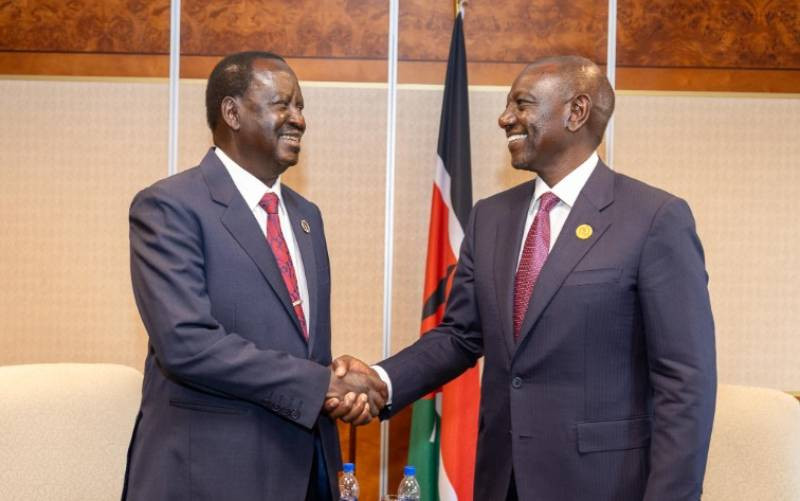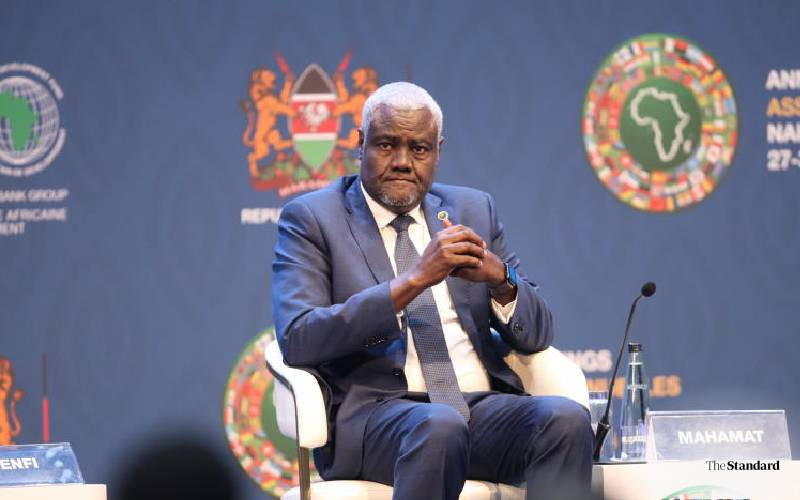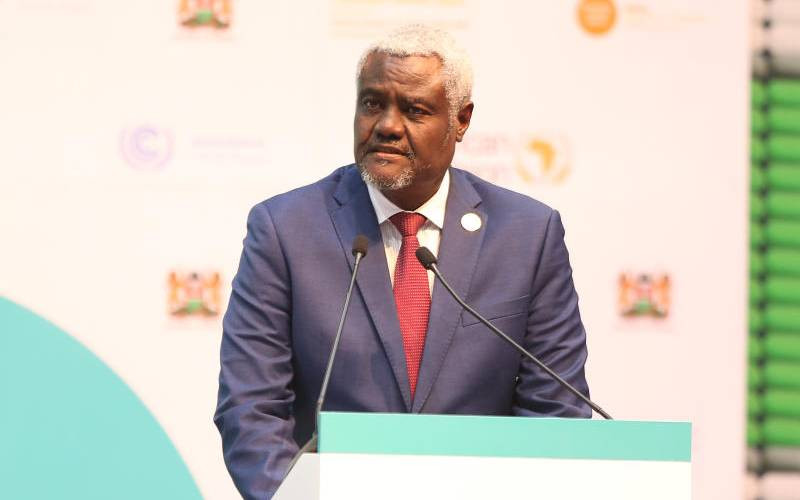Outgoing AUC Chairperson Moussa Faki Mahamat during the Africa Climate Summit at KICC, Nairobi on September 5, 2023. [Stafford Ondego, Standard]
Leading the African Union Commission (AUC) for the last eight years was no easy task for Moussa Faki Mahamat.
On Saturday, February 15, Faki delivered his final address as AUC chairperson at the AU Assembly in Addis Ababa, Ethiopia.
Amid a standing ovation from African Heads of State and Government, he bowed out, but not without acknowledging the challenges of his tenure and apologising for ‘missed opportunities.’
“Certainly, I have made mistakes and missed an opportunity to do better… I apologise if my remarks have caused any harm, individually or otherwise,” he told the leaders, including UN Secretary-General António Guterres and Palestinian President Mahmoud Abbas.
Faki admitted he may have underestimated the weight of the role when he took office in 2017.
-
'Good luck, buddy,' Ruto tells Raila ahead of AUC vote
 How Faki failed AfCFTA and why Raila must make it work
How Faki failed AfCFTA and why Raila must make it work
“I have made mistakes here and there… I wanted to do better. Perhaps I underestimated the burden,” he said, adding that he looks forward to his newfound freedom.
He further urged African leaders to embrace Pan-Africanism and prioritise the continent’s interests.
The outgoing AUC chairperson also expressed confidence in the leadership of incoming AU chairperson, Angola’s President João Lourenço.
“The quiet strength you symbolise reassures me of a chairmanship of seriousness and substance. I wish you success."
Faki assumed the AUC chairmanship in January 2017, navigating a tenure marked by rising coups and conflicts across Africa.
He departs as crises continue to unfold, including the escalating humanitarian crisis in the Democratic Republic of Congo (DRC) and the ongoing conflict in Sudan.
Before leading the AUC, Faki served as Chad’s Prime Minister and Minister of Foreign Affairs. He is fluent in French, English, and Arabic. By Betty Njeru, The Standard






